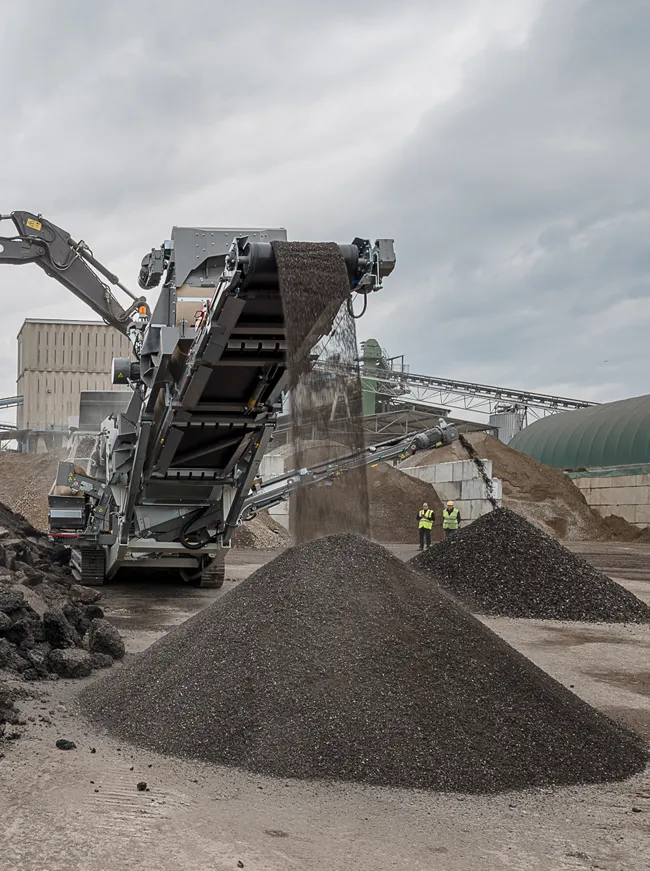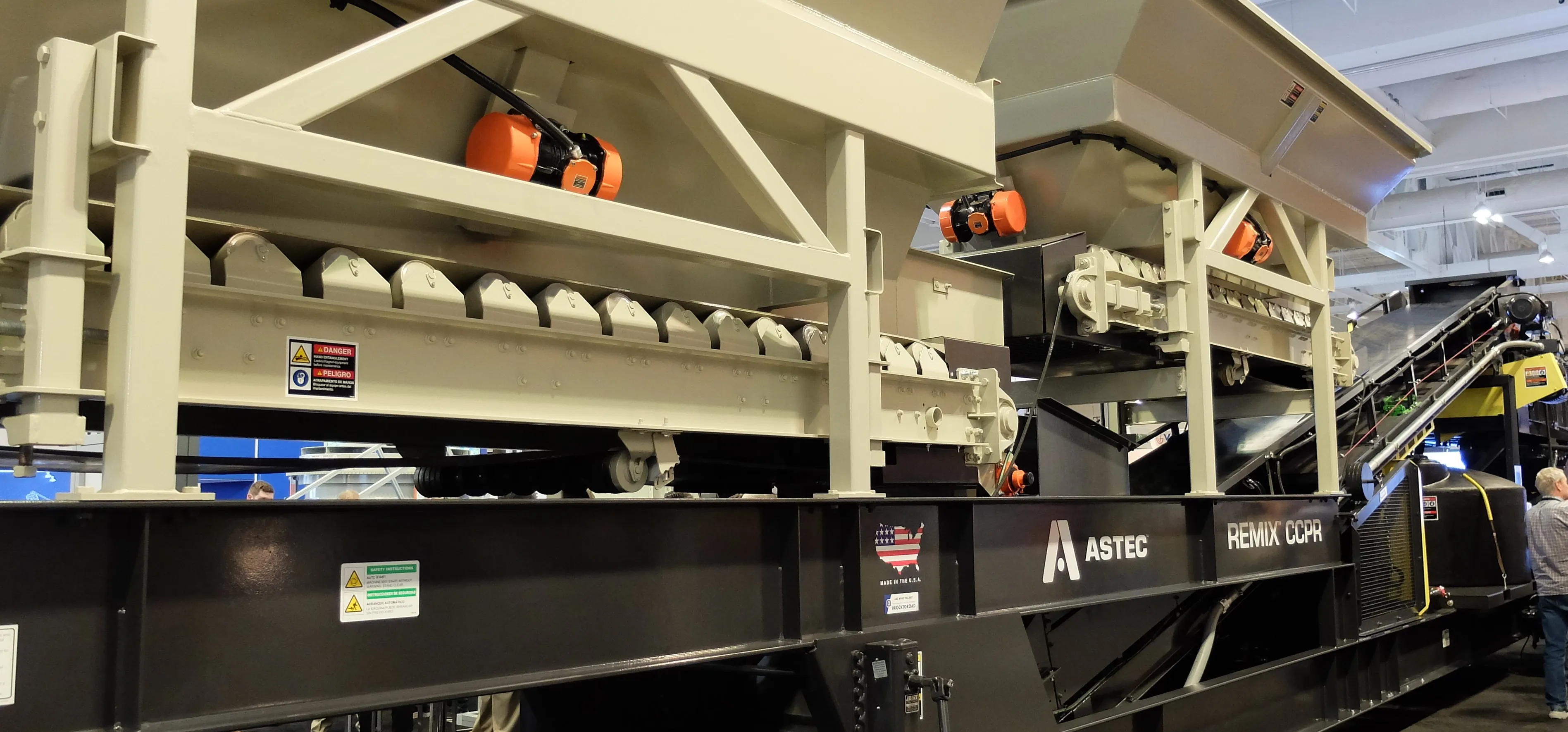
Asphalt production needs are changing in China, with environmental factors becoming increasingly important. Lieven van Broekhoven, executive vice president sales and marketing at
According to van Broekhoven, factors such as noise, exhaust emissions and smell are now key issues when installing asphalt plants in China’s urban areas. He said that the Chinese Government is now rolling out tough new policies to tackle pollution. And he said that for asphalt plant production, “...they’re regulations will be the toughest in the world. If the Chinese Government says to a firm that their plant it doesn’t meet the regulations, they’ll pull the plug.”
Meanwhile recycling is another increasingly important factor for the Chinese market, with the new requirements on the use of RAP for road paving now coming into force. Ammann is supplying one of its latest HRT320 plants to a customer in China.
The company is also offering a new recycling unit, the RSS 120-M Shredder, Iron Separator and Screener, for handling RAP for China and the Asia Pacific market. According to van Broekhoven, “It’s designed specifically for breaking up RAP before you put it into an asphalt plant.”
The RSS 120-M Shredder, Iron Separator and Screener is a mobile machine that has a three-in-one capability as it can function as a shredder, iron separator and screener. The machine offers a suitable solution for recycling asphalt feed material that ranges in size from milled cuttings to larger pieces. Protective processing also maintains desired grain sizes. The RSS 120-M can go from installation to production in as quickly as 30 minutes. The machine is track-mounted for maximum mobility on all types of terrain.









